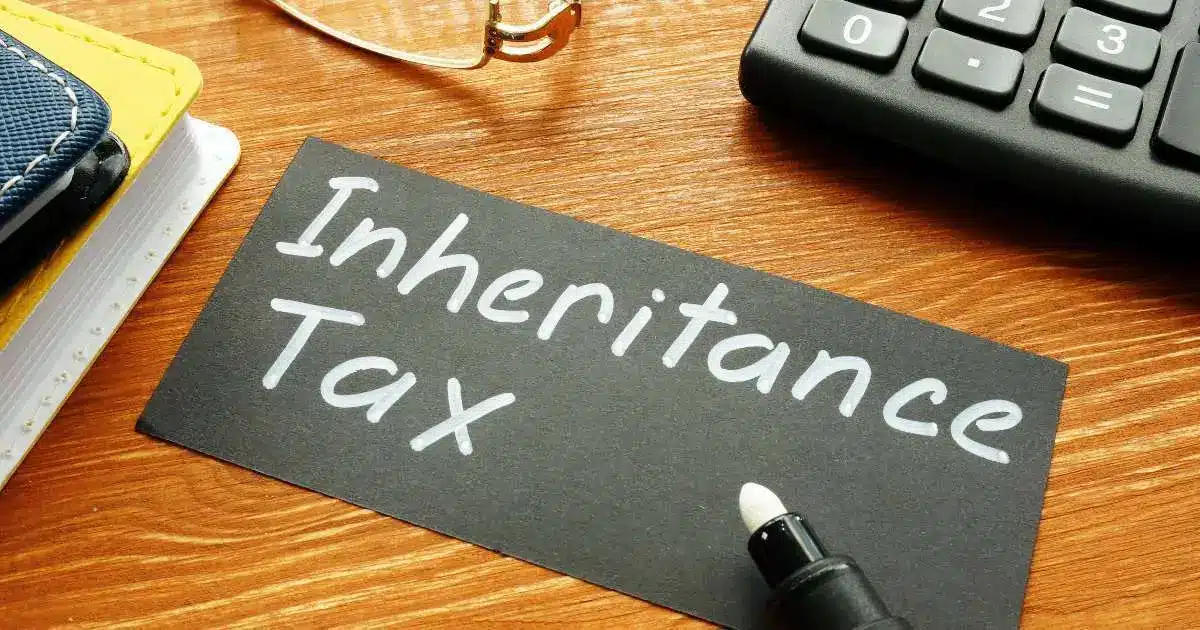Our guide will teach you everything you need to know about inheritance taxes to make sure your plans work out smoothly without any hiccups along the way.
What is Inheritance Tax?
If you are a UK resident it is important to understand inheritance tax and how to plan for it. It is a tax on the estate of someone who has died, including their property, money, and possessions.
This tax is typically levied on estates above a certain threshold, currently set at £325,000 in the UK.
However, there are ways to reduce the amount of inheritance tax your estate will owe, such as making use of exemptions and reliefs. Consulting with a tax professional can help you create a plan to minimize the impact of inheritance tax on your estate
Inheritance Tax Threshold
The first factor to consider is the nil-rate band which is currently set at £325,000. This means that any assets below this threshold are not subject to inheritance tax. However, for assets exceeding this amount, the tax rate is set at 40% of the total value.
There are also additional considerations that may affect the amount of inheritance tax you have to pay, such as any exemptions or reliefs that may apply, as well as your relationship with the deceased individual. eg. if you are a surviving spouse or civil partner, you may be eligible for a higher nil-rate band.
The inheritance tax threshold rates in the UK are as follows:
- Nil-rate band: £325,000
- Residence nil-rate band (direct descendants, such as a child or grandchild): £175,000
- Total combined nil-rate band for married couples and civil partners: £1 million
What is Nil-Rate Band?
The residence nil rate band (RNRB) is a new inheritance tax allowance that was introduced in April 2017. This allowance allows you to pass on an extra £100,000 tax-free to your heirs.
The nil rate band applies to estates that are left to children or grandchildren, and also it is available to married couples and civil partners who leave their property to each other.
To take advantage of the nil rate band, you must be living in the UK at the time of your death, and it should apply to the main residence. If you are not living in the UK, you may still be able to claim the nil rate band if your estate includes a UK property that is valued at £500,000 or less.
11 Tips to Reduce Inheritance Tax Bill
There are several ways to plan ahead and reduce your tax liability in the UK, so it is important to understand how it works.
1. Give Away
Giving away assets and property before you pass. This will help to reduce the value of your estate and as a result, pay less tax amount.
2. Donation
Make charitable donations in your will. Charities are not liable for IHT bills, so by giving money to charities you can reduce your liabilities considerably.
3. Gifts
Consider making gifts to your loved ones during your lifetime. Each year, you can give up to £3,000 worth of gifts without incurring any IHT. You can also give small gifts of up to £250 to as many people as you like, reducing the total value of your estate.
4. Trust
Setting up a trust can help to protect your assets for future generations and can reduce your inheritance tax bill, ensuring part of your estate remains intact. Seek advice from a professional to ensure you set up the right type of trust for your situation.
5. Business Property
Investing in qualifying business property or holding shares in qualifying companies can attract Business Property Relief, which can reduce or eliminate your IHT liability on these assets.
6. Life Insurance
Consider taking out a life insurance policy that will pay out a lump sum on your death, which can help to cover the IHT bill and provide financial support for your loved ones.
7. Non-UK
Leave property to non-UK domiciled individuals. If you own assets overseas, IHT can be avoided by making sure your beneficiaries are not UK citizens.
8. Pass on Your Wealth
If you have a family business, inheritance tax IHT can be reduced by splitting the inheritance between family members.
9. Land
Transfer agricultural land or buildings under the terms of Agricultural Relief (APR).
10. Tax Relief
Make use of tax relief, which may be subject to inheritance tax laws. There are many inheritance tax IHT exemptions and reliefs that your accountant can help you take advantage of.
11. Spend – spend – spend in a tax year
Type of Trusts
Trusts can be a great way to protect your inheritance and ensure that inheritance tax is not payable. There are many different types of trusts available, so it is important to speak with an accountant or estate planner to see which trust would be best for you.
=> Discretionary Trusts
Offers trustees the flexibility to decide how and when to distribute the trust’s assets among the beneficiaries. It’s often used for estate planning to protect assets.
=> Family Trusts
Are established to manage and protect family assets, ensuring they are preserved for future generations. These trusts can offer tax benefits and help in the efficient transfer of wealth within a family.
=> Fixed Trusts
The beneficiaries and their entitlements are predetermined and specified in the trust deed. Provides certainty and clarity regarding who receives what portion of the trust’s assets.
=> Offshore Trusts
Created in jurisdictions with favourable tax laws, often to achieve tax efficiency and asset protection. Used by individuals and businesses to manage wealth internationally.
=> Charitable Trusts
Providing tax advantages to the donor. The assets are used for public benefit, often supporting causes like education, healthcare, and poverty alleviation.
Common Mistakes Made with IHT Bill
1.) Not filing a return at all – this is the most common mistake and can lead to penalties and interest.
2.) Filing a return that is inaccurate or incomplete – this can also lead to penalties and interest.
3.) Not paying inheritance tax when it is due – if you do not pay on time, you may face significant penalties.
4.) Paying IHT when it is not due – sometimes people mistakenly think they have to pay inheritance tax when they do not have to.
5.) Failing to take into account available exemptions and allowances – this can result in you paying more inheritance tax than necessary.
6.) Not keeping records up-to-date.
7.) Not taking into account changes in your personal circumstances e.g. If you get married, divorced, or have children, it is important to update your direct descendants, who are part of your estate.
Benefits of Married Couple
=> The main benefit for spouses is that it allows the surviving partner to inherit the estate tax-free, even if the estate exceeds the nil rate band. This means that they will not have to pay any tax on the assets and property that they inherit from their deceased spouse or partner.
=> Another benefit of inheritance tax IHT is that it helps to protect the inheritance of the surviving spouse or partner. This can be important if the surviving registered civil partner needs money to live on after their partner has died.
FAQ – Pay Inheritance Tax
=> HOW TO PREPARE FOR INHERITANCE TAX?
- A financial adviser can provide valuable guidance on how to prepare for inheritance tax, ensuring the unused allowances are considered. They can assist in assessing your current financial situation and offer tailored advice on minimizing tax liabilities.
- Understanding the rules around inheritance tax on gifts is crucial. Knowing how and when to gift assets can significantly reduce the amount of tax your loved ones may have to pay in the future.
- Seeking legal advice is recommended to ensure your estate planning aligns with inheritance tax laws. Consulting with a solicitor can help you create a tax-efficient will that maximizes the inheritance left to your beneficiaries and helps you make a plan for probate.
- Proactive planning helps mitigate the effects of inheritance tax. By taking steps to organize your assets and investments, you can minimize the tax burden on your estate and ensure your beneficiaries receive the maximum benefit from your legacy.
=> HOW TO PAY INHERITANCE TAX?
The IHT is usually paid by the executor of the deceased person’s estate. Complete and submit an inheritance tax return within 12 months of the death, as the estate may be subject to inheritance tax. Once the inheritance tax has been paid, the executor can apply for a clearance certificate from HMRC, facilitating the probate process.
Financial advice should always be sought when dealing with inheritance tax to pay or before making any payments to HMRC.
=> CAN I LEAVE A HOUSE IN A TRUST TO AVOID AN INHERITANCE TAX BILL?
Trusts can be a great way to protect your inheritance and ensure that inheritance tax is not payable. When you put your house or other assets in a trust, the property is transferred to a trustee who will be responsible for managing it on your behalf.
As the trustee is not the owner of the property, they will not be liable for inheritance tax purposes. This can be a great way to protect your family home from estate taxes and ensure that it goes to your heirs without any additional costs.
=> HOW TO PROTECT YOUR ESTATE?
One of the simplest and most effective ways is to plan ahead. Another way is to make sure that you are aware of all the exemptions and allowances that are available, which may be subject to inheritance tax. Many different types of properties are exempt from inheritance tax, so it is important to understand what these are.
Conclusion – Planning Advice
Inheritance tax can be complex, comes down to individual circumstances and may require the help of an accountant to understand how it works, especially if the total value of your estate exceeds the nil rate band.
It is very important to make plans ahead for your estate value so that you are not faced with unexpected taxes or penalties because you did not know about them before they came into effect.
There are many ways to protect your family wealth and business assets, but only if you plan in advance by understanding what IHT exemptions exist and how best to use them wisely.
If all this sounds overwhelming, let us know – our team of experts at MH Services will gladly assist with any questions related to taxation services, including those about inheritance tax your loved ones may need to consider.



